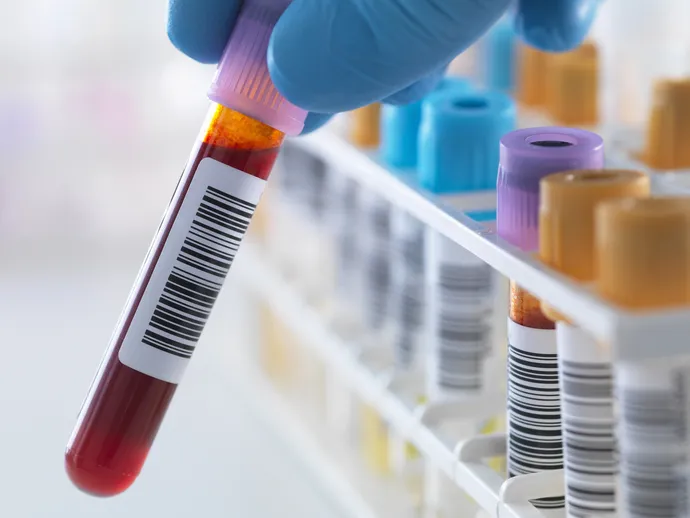Last updated on 16th Oct 2021 - By Dwayne Michaels
How Abnormal ALT SGPT affects heart?
Significantly elevated levels of ALT SGPT often suggest the existence of other medical problems such as congestive heart failure, viral hepatitis, diabetes, liver damage, bile duct problems, infectious mononucleosis, or myopathy, so ALT is commonly used as a way of screening for liver problems.

But before proceeding further let us first know a little about ALT SGPT.
An alanine aminotransferase (ALT) test is often part of an initial screening for liver disease. Normally, ALT is found inside liver cells. But if the liver is inflamed or injured, ALT is released into the bloodstream.
Measuring blood levels of ALT can give doctors important information about the liver and whether a disease, inflammation, drug, or other problem is affecting it. Your body utilises ALT to help breakdown food into energy.

Usually, the ALT levels in your body are low, but in case of a liver damage, more of ALT than required is released into your blood leading to increased levels resulting in stomach pain and swelling, nausea, vomiting, dark coloured urine and itchy skin.
ALT can be ordered as a single test or as part of a requirement with other tests, for individuals who are at an increased risk for liver disease. Comparing ALT with AST levels gives your doctor more information about the health of your liver.
Did you know? Not getting enough sleep is linked to Heart attack, Depression, High Blood Pressure, Obesity and Diabetes.

Also Read : Symptoms of Abnormal alt sgpt
The ALT-to-AST ratio can help your doctor figure out how severe the liver damage is and what might have caused it. However, the ranges of AST and ALT numbers may differ slightly depending on the technique and protocols used by different laboratories worldwide.
However, normal reference ranges are routinely provided by each laboratory and printed with each patient's individual report.
The liver is a reddish-brown, wedge-shaped organ with two lobes of unequal size and shape. A human liver normally weighs approximately 1.5 kg and has a width of about 15 cm.
There is considerable size variation between individuals, with the standard reference range for men being 970–1,860 g and for women 600–1,770 g. It is both the heaviest internal organ and the largest gland in the human body.
Located in the right upper quadrant of the abdominal cavity, it rests just below the diaphragm, to the right of the stomach and overlies the gallbladder.
Also Read : What can cause inaccurate blood test results?
The liver is connected to two large blood vessels: the hepatic artery and the portal vein.
The hepatic artery carries oxygen-rich blood from the aorta via the celiac trunk, whereas the portal vein carries blood rich in digested nutrients from the entire gastrointestinal tract and also from the spleen and pancreas. These blood vessels subdivide into small capillaries known as liver sinusoids, which then lead to lobules.
Lobules are the functional units of the liver. Each lobule is made up of millions of hepatic cells, which are the basic metabolic cells. The lobules are held together by a fine, dense, irregular, fibroelastic connective tissue layer extending from the fibrous capsule covering the entire liver known as Glisson's capsule.
This extends into the structure of the liver by accompanying the blood vessels, ducts, and nerves at the hepatic hilum. The whole surface of the liver, except for the bare area, is covered in a serous coat derived from the peritoneum, and this firmly adheres to the inner Glisson's capsule.
Elevated ALT may also be caused by dietary choline deficiency. However, elevated levels of ALT do not automatically mean that medical problems exist. Fluctuation of ALT levels is normal over the course of the day, and they can also increase in response to strenuous physical exercise.
When elevated ALT levels are found in the blood, the possible underlying causes can be further narrowed down by measuring other enzymes. For example, elevated ALT levels due to hepatocyte damage can be distinguished from bile duct problems by measuring alkaline phosphatase.
Also, myopathy-related elevations in ALT should be suspected when the AST is greater than ALT; the possibility of muscle disease causing elevations in liver tests can be further explored by measuring muscle enzymes, including creatine kinase.
Many drugs may elevate ALT levels, including zileuton, omega-3 acid ethyl esters, anti-inflammatory drugs, antibiotics, cholesterol medications, some antipsychotics such as risperidone, and anticonvulsants. Paracetamol may also elevate ALT levels.

Does drinking water before blood test affect results?
Certain blood tests require fasting beforehand. Fasting before certain blood tests is important to help make sure that your test results are accurate. Read on to learn more about the effects of water on blood test results.
Know more
What can cause inaccurate blood test results?
Several factors can affect blood test results. Read on to know the top reasons which can lead to inaccurate blood test results.
Read more
Painful health problems of famous celebrities
Read on to know chronic illnesses of top celebrities
Know more